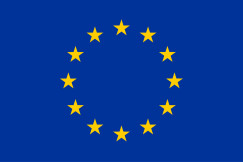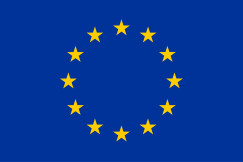Legislation
30 May 2025
Feed hygiene Regulation
Legislation
30 May 2025
1. Healthy, balanced and sustainable diets for all European consumers
4. An optimised circular and resource-efficient food chain in Europe
Login / create an account to be able to react
-
14

Regulation (EC) No 183/2005 sets stringent hygiene and safety requirements for animal feed across the EU to protect human health, animal health, and the environment.
It mandates that feed business operators, from primary production to market distribution, ensure feed safety and traceability. The regulation excludes certain small-scale operations, like domestic production for private use. Key requirements include the compulsory registration and approval of feed businesses, uniform hygiene practices, and the implementation of Hazard Analysis Critical Control Point (HACCP) principles.
Editorial team
European Commission - DG SANTE
Topics
EU-27
EU Institutions
-
CoC aspirational objectives
-
-
1. Healthy, balanced and sustainable diets for all European consumers
-
4. An optimised circular and resource-efficient food chain in Europe
-
Share
Regulation (EC) No 183/2005 aims to ensure the safety and quality of animal feed within the EU by establishing comprehensive hygiene requirements across all stages of production, from primary production to market placement, including imports and exports.
The regulation mandates a high level of protection for human life, animal health, and the environment by ensuring traceability and responsibility throughout the feed chain. It applies to feed business operators but excludes certain small-scale and private operations, such as domestic production for private consumption and small direct sales.
Key elements of the regulation include compulsory registration of feed business operators with national authorities and approval for establishments dealing with sensitive substances. The regulation enforces uniform hygiene practices and introduces the Hazard Analysis Critical Control Point (HACCP) principles for feed operators beyond primary production. Feed businesses must implement measures to prevent contamination, maintain records of safety protocols, and take corrective actions when necessary. They must also ensure staff training and maintain organised documentation of safety practices.
Compliance involves working with national authorities to ensure all establishments are registered and approved, with approvals subject to suspension or revocation if standards are not met. The regulation also encourages the development of good practice guides at the EU and national levels to support safe feed production.
Related regulations:
Regulation (EC) No 183/2005 laying down requirements for feed hygiene
Comments (0)
See also
-
5
Nutrition and Health Claims
- Categories
- 2. Prevention and reduction of food loss and waste 3. A climate - neutral food chain in Europe by 2050 4. An optimised circular and resource-efficient food chain in Europe +3 more
-
17
Regulation on aid compatible with the internal markets
- Categories
- 2. Prevention and reduction of food loss and waste 3. A climate - neutral food chain in Europe by 2050 4. An optimised circular and resource-efficient food chain in Europe +3 more
-
4
Renewable Energy Directive
- Categories
- 2. Prevention and reduction of food loss and waste 3. A climate - neutral food chain in Europe by 2050 4. An optimised circular and resource-efficient food chain in Europe +3 more




